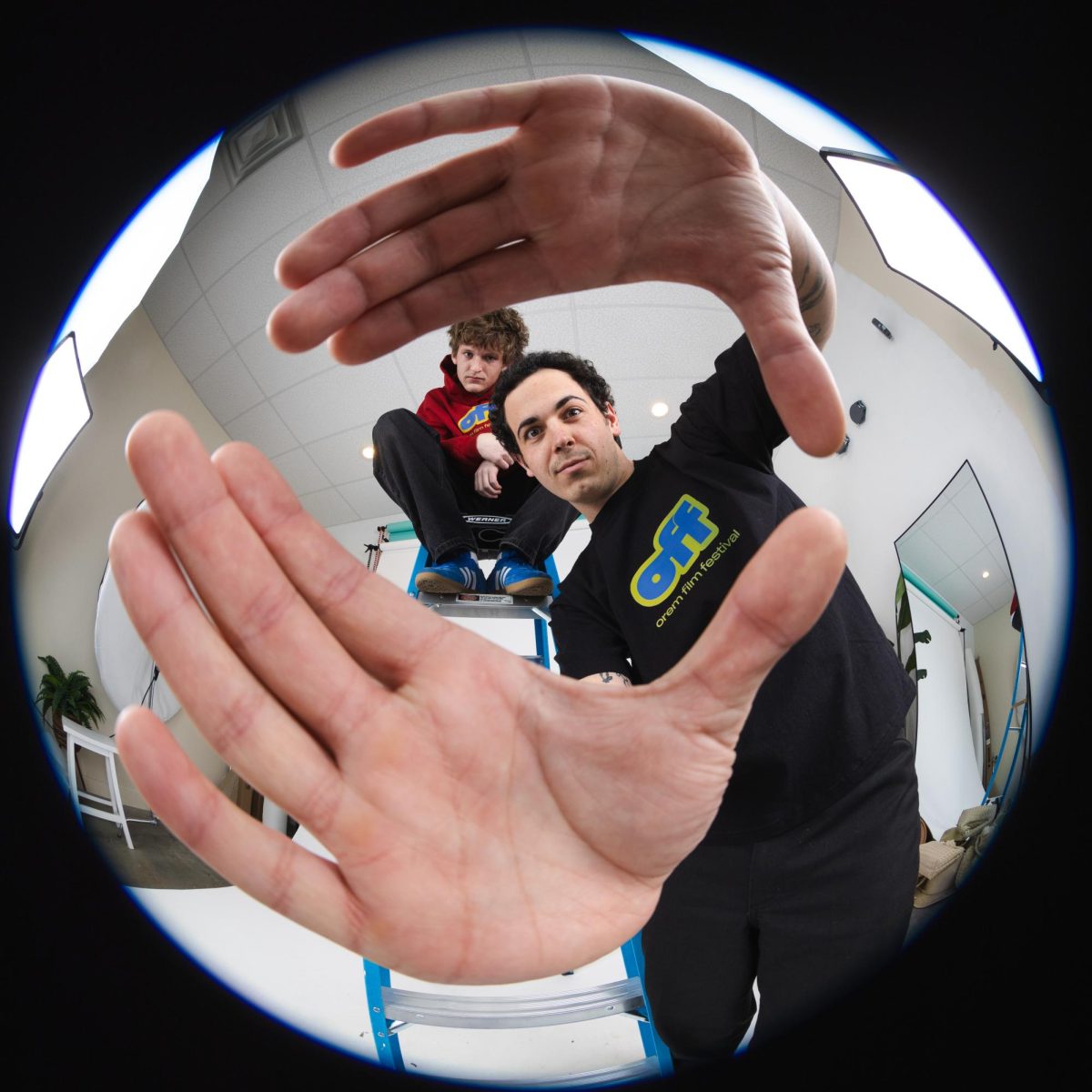There was a sense of normalcy in Peery’s Egyptian Theater as the Chamber Orchestra Ogden returned to the stage for the first concert of its 10th anniversary season on Sept. 26. The orchestra was conducted by former WSU music professor Michael Palumbo.
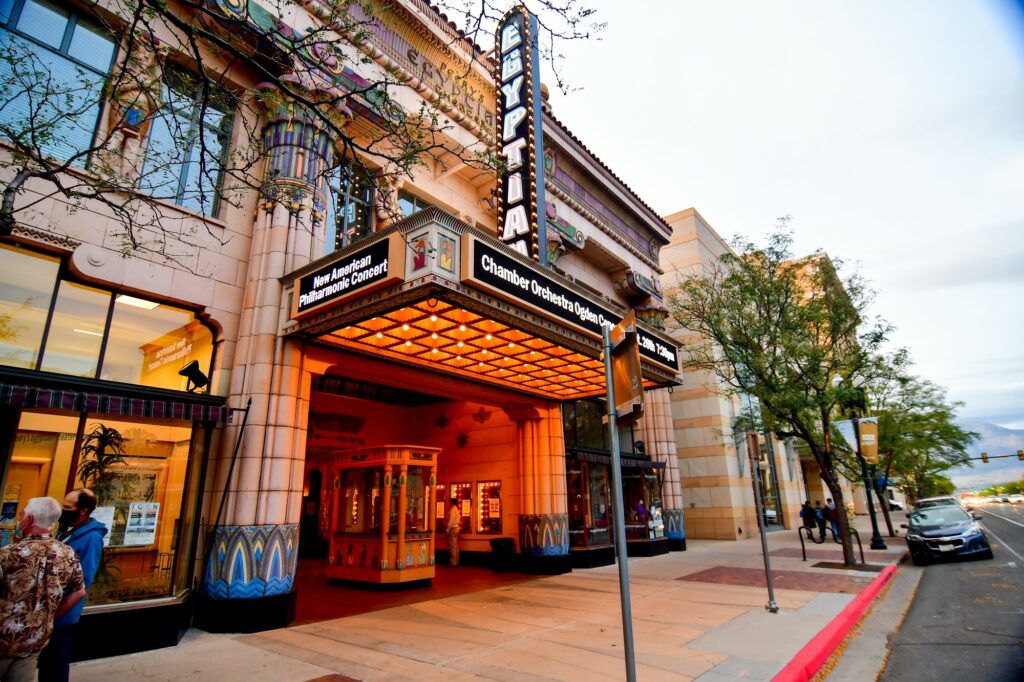
The music ebbed and flowed, filling the chamber hall with sound, a now-somewhat-unique phenomenon given COVID-19 regulations.
In reality, the concert was not quite normal. It was one of the first events at the theater open to the public since the beginning of the COVID-19 pandemic, and to make it possible required many adjustments.
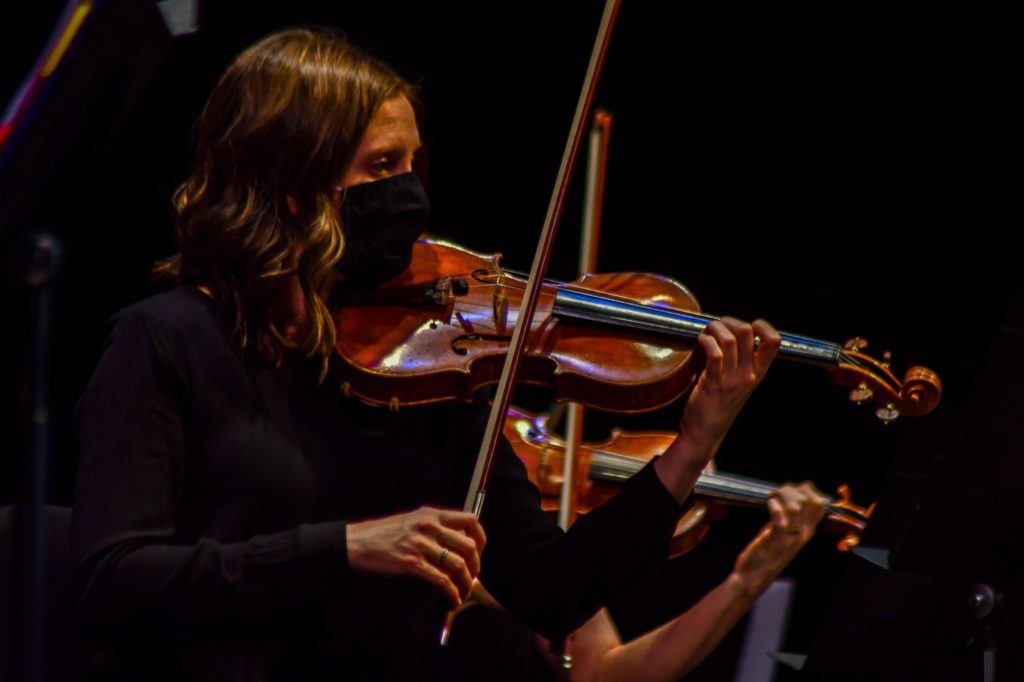
The originally-65-person orchestra had to be cut down to 22 string players and one keyboard to allow for social distancing on stage. No brass and woodwind instruments were allowed in the concert due to the difficulty of safely spacing instruments that project spit. Each musician wore a mask, as well as all the audience members spaced safely throughout the auditorium.
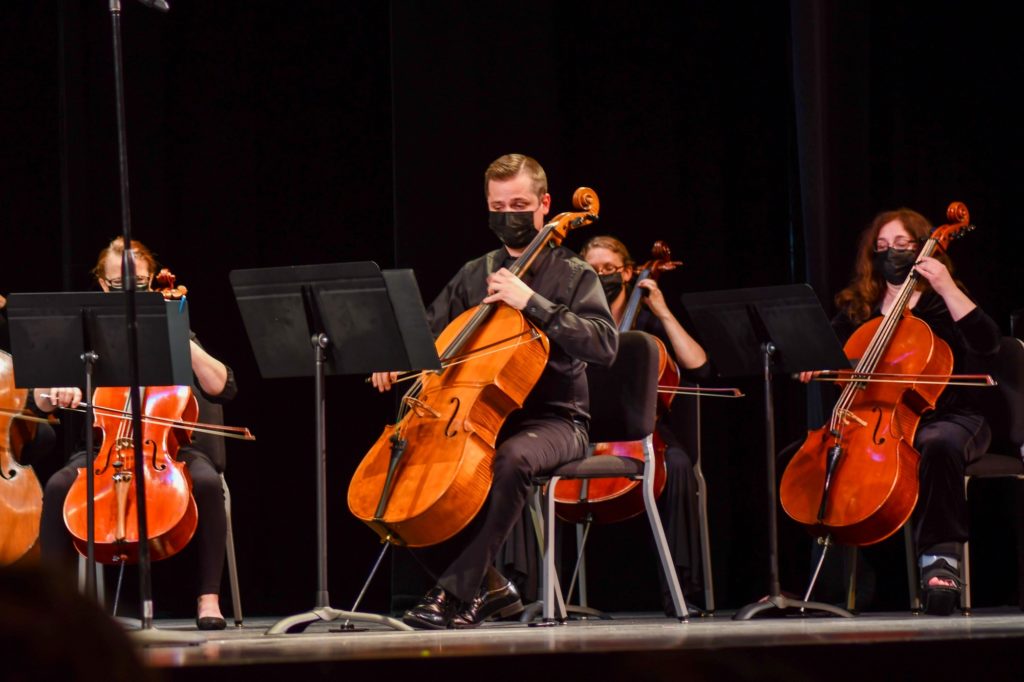
“We’ve gone to great lengths to make those changes to keep the audience members safe, as well as the members of the orchestra,” Palumbo said.
The members also had to practice and mostly prepare the music at home before the three 90-minute rehearsals they were allowed the week before the concert.
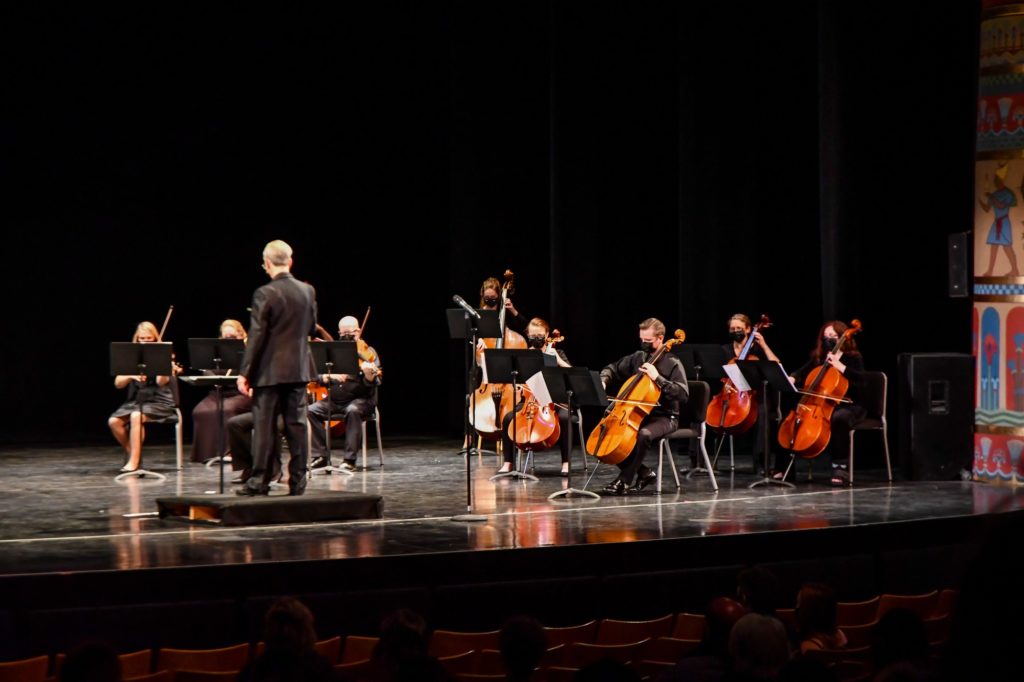
The orchestra opened the concert with a lively “Hoedown” by Aaron Copland. It was followed by “String Symphony No. 1 in C” from “The 12 String Symphonies” by Felix Mendelssohn, two Elegiac Melodies by Edvard Grieg and an arrangement of two Irish reels called “Molly on the Shore.”
The next piece, “Spring” from “The Four Seasons” by Vivaldi, featured concertmaster Peggy Wheelwright as the skilled solo violinist, as well as the orchestra’s new Clavinova for the harpsichord part of the piece.
The orchestra was able to obtain the Clavinova, a digital keyboard instrument that can be used to sound like almost anything, (in this case, a harpsichord) thanks to donations they received last season.
The concert ended fittingly with “Eine Kleine Nachtmusik,” translated from German as “A Little Night Music,” by Mozart. Palumbo described the piece as probably the most overplayed work of Mozart, but forgivably so for its greatness, saying that “when it’s great, you can’t change the fact that it’s great.”
Palumbo joked that he had hoped there would be more people in the audience than on stage, and fortunately there was.
Palumbo said that he had missed conducting the orchestra and was excited to finally be back to work and able to continue music.
“It’s really important that the arts, and, in our case in particular, music, have a way of surviving during COVID,” Palumbo said. “As musicians, we kind of live for that performance. That’s our reason for being.”
This was the orchestra’s first performance since March due to the many cancellations it went through in the past several months. Palumbo said that he hopes to have the whole orchestra back on stage for its next performance in February, and for the following plans for the year, but it is still uncertain what will happen with the COVID-19 situation.
Editor’s Note: this story was updated to fix the misspelling of Peggy Wheelwright’s name.
















